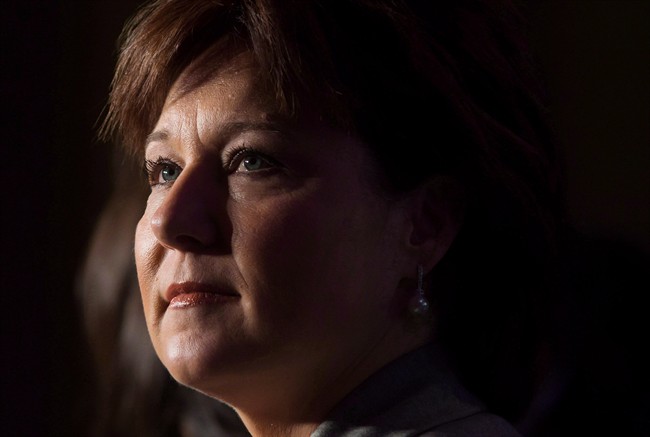VICTORIA – Premier Christy Clark says the past year has been one of surprises over new relationships she and her government formed with former political adversaries in British Columbia.

In a year-end interview with The Canadian Press, Clark said she’s amazed at the new ties forged with labour unions, First Nations and Alberta since Jim Prentice took over as premier, after Alison Redford resigned.
A six-year deal with B.C. teachers, union agreements with government and health workers, and settlement of a strike at the Port of Vancouver were all part of an eventful labour year in the province.
“For me, the way the whole labour agenda unfolded, I didn’t expect this to be such a big part of my premiership,” Clark said.
She singled out agreements with teachers, the B.C. Government and Service Employees’ Union, and a deal with the province’s top labour leaders in support of the liquefied natural gas industry.
“You think about that narrative, being able to work with the unions as well as we have, the way they accepted my invitation into the corridors of power has been a really fantastic surprise,” she said. “It’s a product of my view that there are those who think, ‘Well, we won the election and you are out.'”
“I think, ‘No,’ what we need to do is we need to try and bring as many people in a we can.”
Clark said a Supreme Court of Canada ruling in June granting aboriginal title to the Tsilhqot’in Nation in B.C.’s central Interior prompted the government to open doors rather than take the traditional route through the courts.
In the historic judgment, the court granted title to the Tsilhqot’in to over 1,750 kilometres of land in the remote Nemiah Valley southwest of Williams Lake. Clark became the first B.C. premier to visit the valley as a guest of the First Nation in September, and she followed up that trip with a historic meeting of her cabinet and more than 400 aboriginal leaders from across B.C.
“It was an incredible start to what will be a long dialogue,” she said. “Our relationships with First Nations, just like our relationships with labour, with communities, with anybody, with the federal government, are always evolving.”
Clark said the meeting was a chance for the groups to listen to the way they each saw the world.
“We need to collectively sit down and think how we, the government, and First Nations, can avoid going to court about everything, and losing the opportunity for (growth) for a few decades (while in court.)”
Tsilhqot’in Nation Chief Joe Alphonse said Clark’s decision to formally apologize and exonerate six chiefs who were hanged 150 years ago for the deaths 20 people during the so-called Chilcotin War in 1864 prompted a new dialogue between his people and the government.
Union of B.C. Indian Chiefs Grand Chief Stewart Phillip said the meeting between Clark’s cabinet and aboriginal leaders revealed the battle for recognition of aboriginal rights and title in B.C. has been “long and ugly.”
“Reconciliation is not for wimps,” he said. “It’s very, very hard work. Our children and our grandchildren deserve a better future.”
Clark said she believes Prentice has a deeper understanding of what makes B.C. tick, which will help as the two province’s tackle ongoing energy issues. Clark’s relationship with former Alberta premier Alison Redford was described as frosty, as the two leaders debated the proposed Northern Gateway pipeline from Alberta to B.C.
“He’s going to be a great partner for B.C.,” she said. “There has never been a premier of Alberta who understands British Columbia the way that Jim Prentice does.”
This is a complex province, where people care about the environment, they believe in being fair and forthright with First Nation, she said. “We are a proud people. He gets that.”
Clark said the government’s recent projections of a budget surplus approaching $450 million could result in some social assistance top ups next year, but she wouldn’t make any direct promises to the clawbacks connected to assistance payments to single-parent families.
The Opposition New Democrats and social service groups have been calling on her government to stop cutting assistance rates if families receive child-support payments.
“I have always said I do want to find a way to raise those social assistance rates, particularly for people with disabilities,” Clark said. “We’ve got to make sure we can afford it before we do it.”



Comments